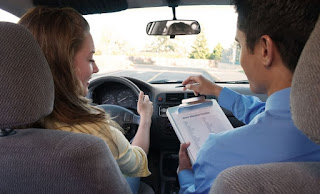What Do Defensive Driving Courses Teach About Police Interactions?
Defensive driving courses equip drivers with essential skills to stay safe on the road, avoid accidents, and handle unexpected situations—including interactions with law enforcement. These courses emphasize best practices for dealing with police officers during traffic stops to ensure safety, compliance, and respect on both sides. Here’s what defensive driving courses typically teach about police interactions.
1. Remain Calm and Composed
One of the first lessons in handling a police stop is to remain calm. Nervous or erratic behavior can escalate the situation. Defensive driving courses encourage drivers to take a deep breath, stay composed, and follow instructions.
2. Pull Over Safely
When a police officer signals for you to pull over, it’s crucial to do so promptly but safely. Courses teach drivers to:
Use turn signals to indicate their intention.
Pull over to the right shoulder or a safe location.
Stop the vehicle completely and turn off the engine.
3. Keep Hands Visible
To ensure the officer feels safe, drivers are taught to:
Keep their hands on the steering wheel.
Avoid reaching for documents until instructed.
Inform the officer if they need to retrieve something, such as a license or registration.
4. Communicate Respectfully
Politeness and cooperation can make a significant difference in how a police stop unfolds. Defensive driving courses stress:
Speaking clearly and respectfully.
Avoiding arguments or confrontations.
Following directions without hesitation.
5. Know Your Rights
Understanding legal rights is another key component. Drivers learn that:
They have the right to remain silent beyond providing required identification.
They can refuse a vehicle search unless there is probable cause or a warrant.
They can ask if they are free to leave if not being detained.
6. Handling a Ticket or Citation
If issued a ticket, drivers are advised to accept it without dispute and address concerns in court, not on the roadside. Courses emphasize:
Signing a citation is not an admission of guilt.
Challenging a ticket should be done through legal channels.
7. Dealing with Unfair or Problematic Stops
If a driver feels they were stopped unfairly, they should:
Remain respectful and compliant.
Note details such as the officer’s badge number and patrol car.
File a complaint later if necessary.
Conclusion
Defensive driving courses provide valuable guidance on handling police interactions safely and legally. By staying calm, communicating clearly, and knowing their rights, drivers can ensure a smooth and stress-free encounter with law enforcement. These lessons help build mutual respect and improve road safety for everyone.



Comments
Post a Comment